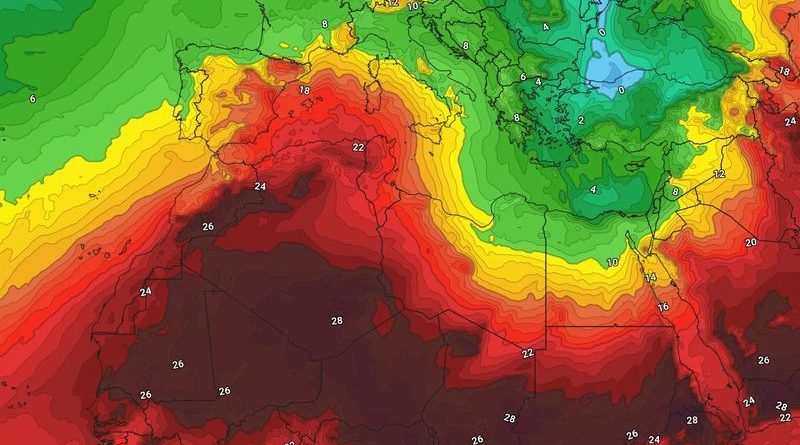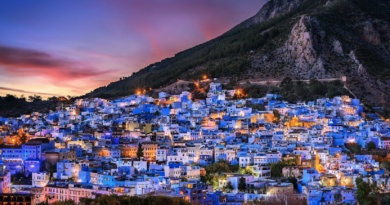Climate change behind heatwaves in the Maghreb
A new study by World Weather Attribution (WWA) has found that the recent heatwave in Spain, Portugal, Morocco, and Algeria would have been almost impossible if it wasn’t for climate change. The international team of ten climate researchers from WWA published their study just eight days after the peak of the heatwave.
The research found that climate change made the heatwave at least 100 times more likely, with temperatures 3.5°C hotter than they would have been in a world without human-caused climate change. The sweltering heat broke records in each of the four countries with temperatures reaching 36.9-41°C, which were up to 20°C higher than typical April temperatures.
Roop Singh, Senior Climate Risk Advisor at the Red Cross Red Crescent Climate Centre, and a contributing author of the study, says heatwaves occurring earlier than expected can be especially devastating. “Early season heatwaves tend to be deadlier as people have not yet prepared their homes or acclimated to summer temperatures.”
Heatwaves are often described as “silent killers” because it can take authorities weeks or months to fully understand just how many deaths are linked to an individual event. Singh also notes that heatwaves are among the deadliest disasters in the world. According to the World Health Organization, heatwaves in 2022 contributed to nearly 4000 deaths in Spain and over 1000 deaths in Portugal.
A separate study has found that every year, heatwaves lead to an average of 262 deaths in Algeria and 250 deaths in Morocco. Heatwaves are most dangerous for the elderly and poorer people, who have reduced access to air conditioning, greenspaces, shade, and water.
Singh says deaths from heatwaves are preventable. She points to Spain’s introduction of heatwave adaption measures that include early warning and heat advice as “exactly the type of adaptive heat action we need to see more of.”
Heatwaves are becoming hotter, longer, and more frequent due to climate change. According to the WWA study, if global temperatures rise a further 0.8°C to a total warming of 2°C, a heatwave like the one that impacted Spain, Portugal, Morocco, and Algeria would be 1°C hotter.
Dr Friederike Otto, Senior Lecturer at the Grantham Institute and a founder of World Weather Attribution, says the study highlights the need for urgent action to avoid more intense heatwaves in the future. “The Mediterranean region is already experiencing a very intense and long-lasting drought, and these high temperatures, at a time of the year when it should be raining, are worsening the situation.”
“Without rapidly stopping the burning of fossil fuels and adaptation towards a hotter, drier climate, losses and damages in the region will continue to rise dramatically.”



